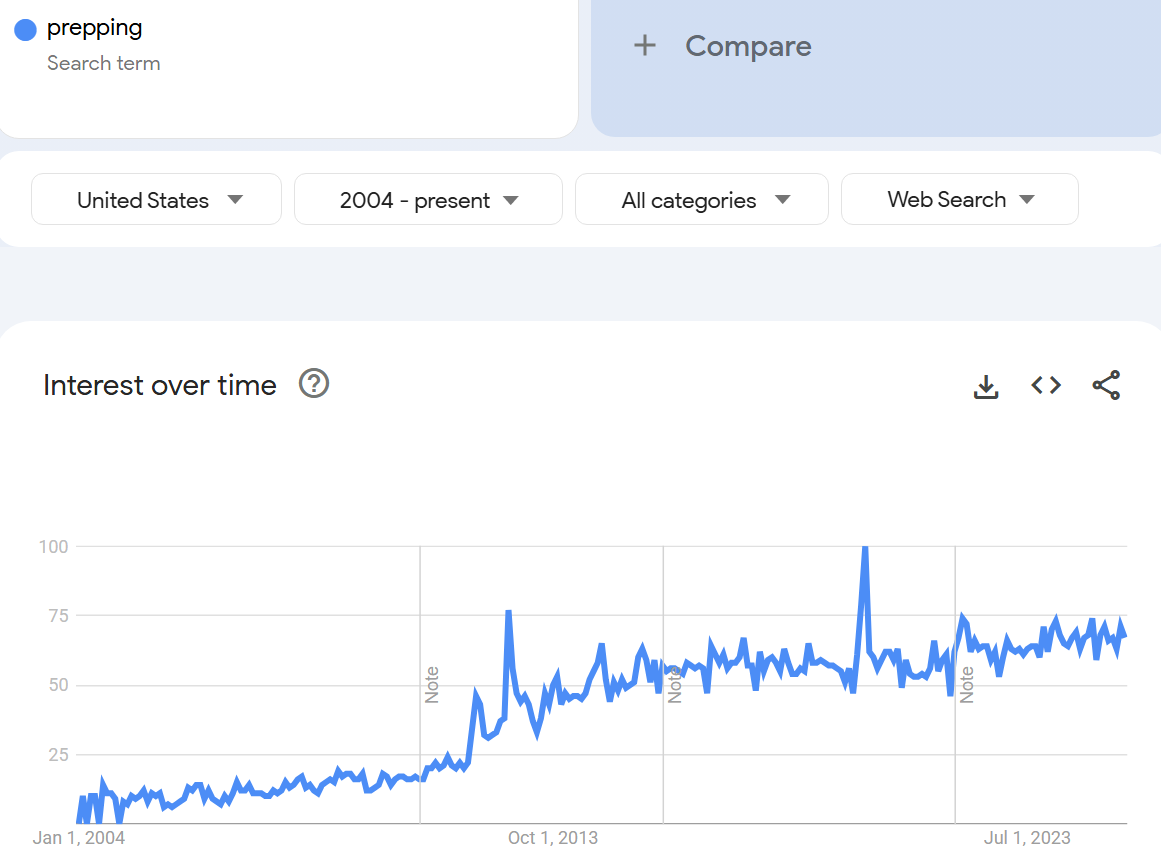The "Shitstorm of Uncertainty" in the United States
Being prepared is no longer optional. Make a plan. Conditions will continue to deteriorate.
It wasn’t too long ago that the typical “prepper” was seen as a fanatic, readying for an imaginary doomsday scenario such as a supervolcano or chemical warfare. Today, interest in the topic of preparedness within the United States is at a sustained all-time high, and has absolutely entered mainstream discourse.
Why? The perfect storm is brewing in our co…




